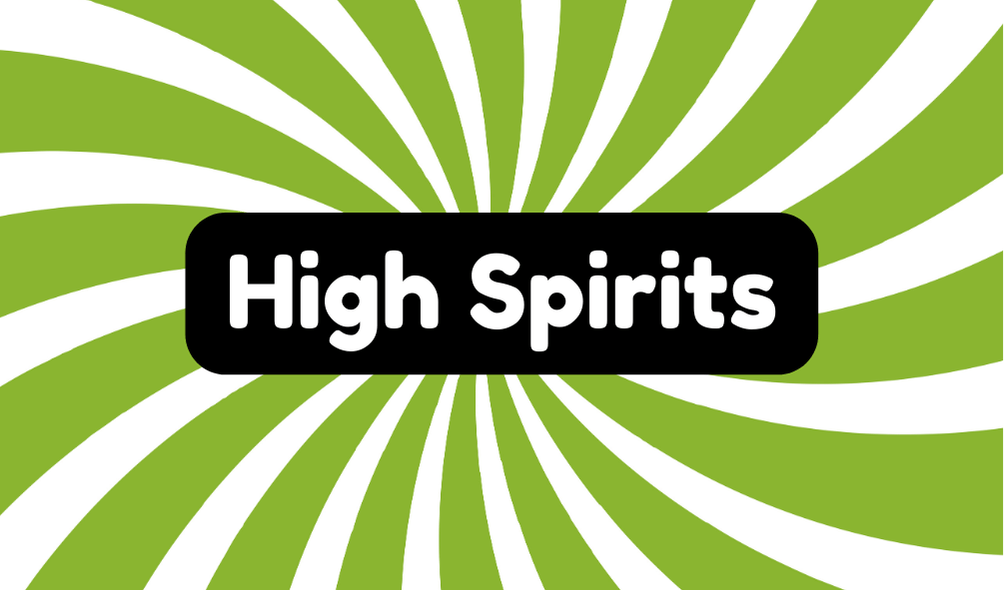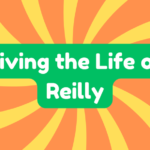"High spirits" refers to a state of joy and positivity, often associated with feelings like happiness or elation. Its origin dates back to the 13th century, stemming from the Latin "spiritus," which means breath or soul. Historically, the term has captured the connection between emotional well-being and liveliness. For example, one might say, "The team's high spirits were evident after receiving good news." The phrase emphasizes the importance of a positive mindset, especially today amidst societal challenges. Understanding this concept can deepen insights into emotional health and collective morale. Further exploration of its relevance offers even more valuable perspectives.
Synonyms
When discussing the term "high spirits," several synonyms capture its essence, offering varied expressions of a joyful and buoyant mood. These joyful expressions enhance our understanding of emotional states, revealing the nuances of positivity. Consider the following impactful synonyms:
- Over the moon
- On cloud nine
- In seventh heaven
- Walking on air
Exploring these alternatives can deepen one's appreciation for the concept of high spirits. While these phrases evoke bright imagery, it's important to recognize that an unwavering state of high energy may not always reflect reality. Positive affirmations and sincere connections are necessary to foster sustainable upliftment. Without balance, such exuberance may lead to unrealistic expectations, underscoring the importance of genuine emotional well-being amid ever-present challenges.
Example of Sentences
High spirits often manifest in various contexts, illuminating the vibrancy of human interactions and experiences. Observing how high spirits can uplift our daily lives is essential for fostering positive interactions. Here are examples of sentences demonstrating this concept:
- Good news elevated the team's mood for the remainder of the day.
- Children were joyful and playful during the school picnic, showcasing their carefree spirit.
- An energetic entrance into the office sparked enthusiasm for upcoming challenges.
- Despite rainy weather, the team maintained a lively atmosphere, proving resilience in adversity.
These joyful experiences exemplify how high spirits can notably influence our environment, creating a ripple effect that enhances overall well-being. Yet, it's crucial to remember that such positivity should be sustained through genuine connections and authentic engagement.
Origin
The phrase "high spirits" reflects a rich linguistic and cultural evolution, encapsulating the essence of human emotions and character. Emerging from the historical context of idiomatic expressions, "high spirits" has roots tracing back to the 13th century, where "spirit" derives from the Latin word "spiritus," meaning breath or soul. This connection hints at a fundamental link between liveliness and emotional states. Over time, the phrase likely evolved alongside literary references that depicted exuberance and joy. Moreover, the use of alcohol as a mood enhancer historically shaped this term, reinforcing the association between elevated spirits and joyous experiences. Consequently, "high spirits" serves as a reflection of the interplay of language, culture, and our collective social evolution.
Collocations
Collocations related to "high spirits" often convey a sense of joy and enthusiasm that resonates in various contexts. These expressions enhance communication, especially in discussions about well-being and productivity. Recognizing these phrases can greatly elevate both conversation and understanding of emotional states.
- high-energy atmosphere
- maintain high spirits
- burst of positivity
- positive mindset approach
While the usage of "high spirits" may appear light-hearted, it merits scrutiny as a tool for fostering genuine motivation and resilience. A mere upbeat tone without considerable inner positivity may lead to superficial interactions. Consequently, one must cultivate a genuine positive mindset to guarantee that the high energy truly reflects an enduring sense of well-being, rather than a fleeting moment of cheerfulness.
How to Use in Everyday Language
When expressing feelings of joy and enthusiasm, incorporating the phrase "in high spirits" can effectively communicate your positive emotional state. This phrase allows for genuine expression, making it a beneficial tool for maintaining high spirits in various contexts. Below is a table illustrating different scenarios where using high spirits enhances communication:
| Scenario | Phrase Example | Benefits |
|---|---|---|
| Workplace | "I feel in high spirits today!" | Boosts team morale |
| Social Gathering | "Let's keep our spirits high tonight!" | Encourages a lively atmosphere |
| Family Events | "The kids are always in high spirits!" | Fosters joyful interactions |
| Sports Events | "The team played in high spirits!" | Reflects positivity in performance |
| Personal Reflection | "I aim to be in high spirits daily." | Encourages proactive mindset |
Understanding how to leverage this phrase can enhance daily interactions and uplift those around you.
Why Is It Still Relevant Today?
While modern society faces numerous challenges that can lead to anxiety and stress, the concept of being "in high spirits" remains profoundly relevant. This phrase carries significant cultural importance, emphasizing the emotional impact of positivity amid adversity. In an age where mental health issues are increasingly visible, maintaining an upbeat perspective is vital for resilience. The ability to foster high spirits can create a ripple effect, inspiring those around us to engage positively. Innovative practices, such as mindfulness and community support, can facilitate these uplifting emotions. However, it is important to acknowledge that merely advocating for high spirits does not address underlying issues. Genuine emotional well-being must incorporate both realistic recognition of struggles and the cultivation of positivity, ensuring a holistic approach to mental health.







